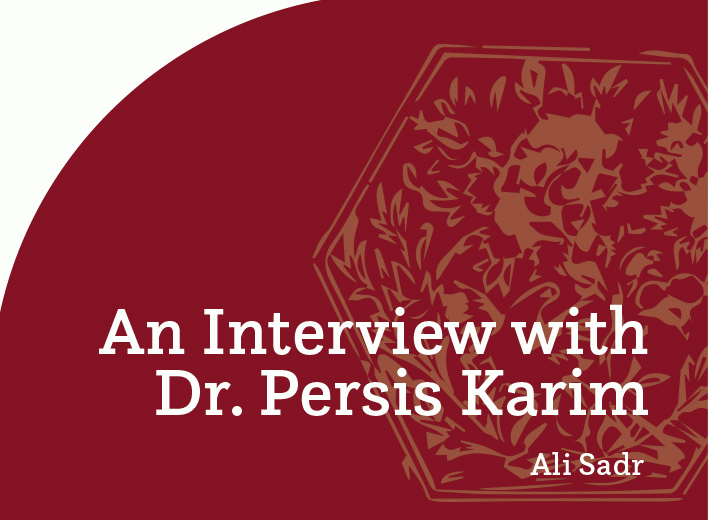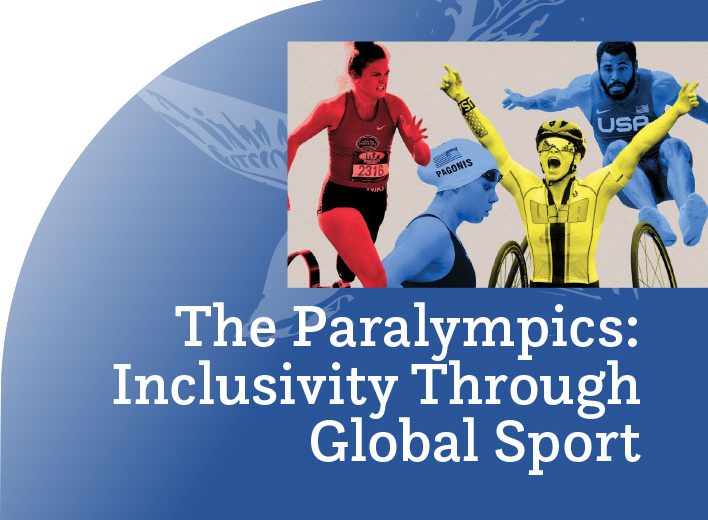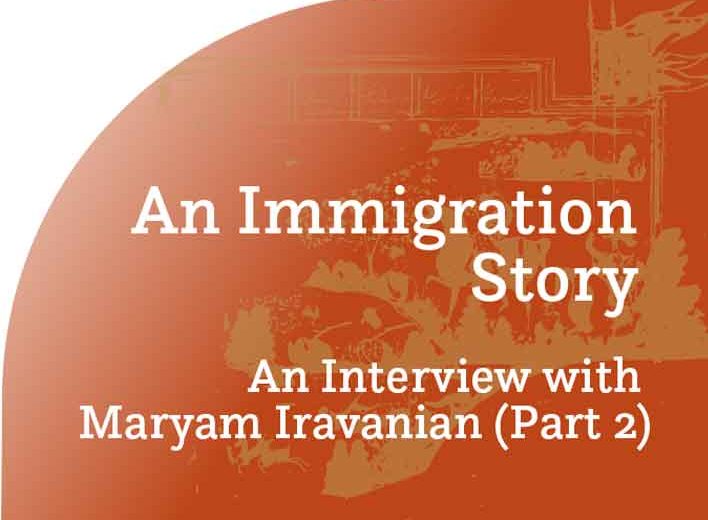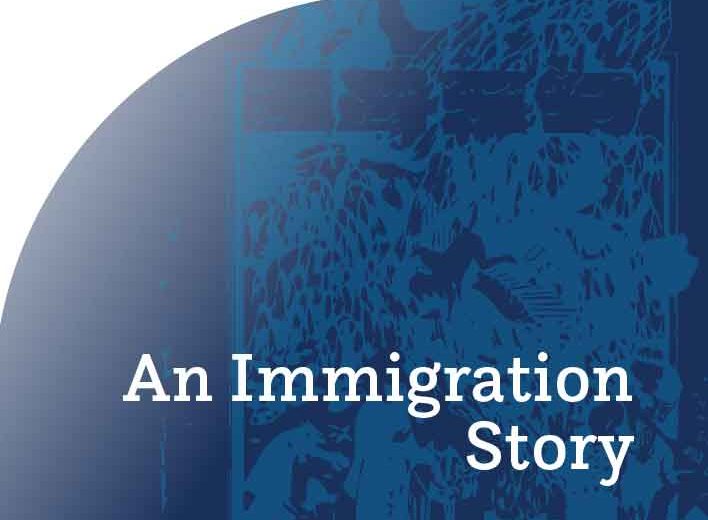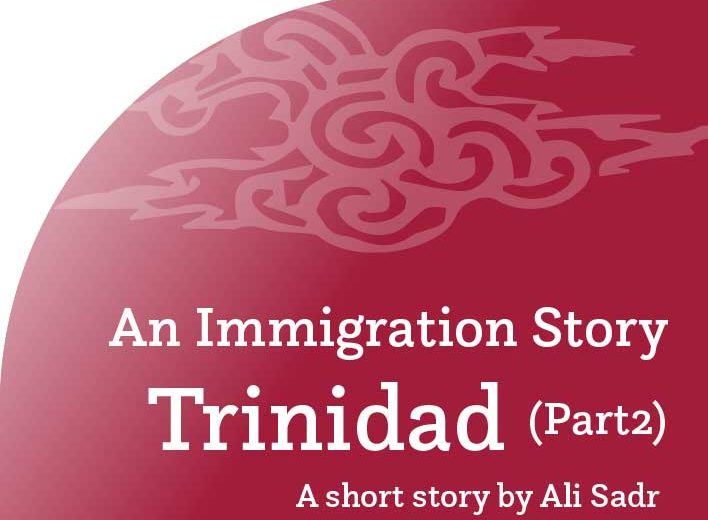Trump or Biden?
With the national election approaching, we decided to provide a platform for both sides of the political spectrum to express their opinions regarding several topics that may be important in their decision making. Because having a face-to-face meeting and debate was not practical due to the COVID-19 pandemic, we presented these topics in the form of 12 questions. Each participant responded to the questions on their own—there was no debate or response to one another. The participants, who are identified by their initials here, do not know each other and did not see the other person’s answers. They are both first-generation Iranian American, middle class professionals—one woman and one man in their mid-fifties. Participant “C.V.,” who lives with her husband in the Greater Los Angeles area, is a supporter of President Trump and will vote for his reelection. Participant “H.A.,” who lives with his wife in a suburb of Washington, D.C., supports Vice President Biden in the upcoming election. We asked about tangible economic and social issues to avoid philosophical and ideological sparring at this point. We hope this helps our readers to see different perspectives in helping them to make their own decisions.
–Peyk Editorial Board
——————————————————————————-
1- Are you better off today than you were in 2016?
C.V.: Today, my family is in a much more stable financial situation than we were in 2016. My husband and I have a much better sense of job security now. When we discuss this with our friends and family, most express the same feeling.
H.A.: Economically, we are not better off since our taxes are higher and our deductions have gone down after Trump’s tax cut of 2017. Specifically, both mine and my spouse’s income taxes are now higher for two reasons. The first reason is that we cannot write off all of our mortgage interest we pay as we did prior to the tax cut. Secondly, we now have a limit of $10k on the write off of our high state tax. It’s obvious that corporations received the lion’s share of Trump’s tax cuts and middle-class families like us got the short end of the stick. Socially and politically, we are definitely worse off since I have family in Iran, and they can no longer visit from Iran. Before Trump, many family members came for a visit by obtaining tourist visas from a third country. Also, the threat of war with Iran really impacts our emotional state. I also think that the lack of a coordinated national response to the COVID-19 pandemic has put us in a worse situation compared to similar western countries and that has contributed to a sense of being worse off.
2- Is the country better off today than it was in 2016?
C.V.: The country is better off today. I am not an economist, but every economic statistic points to a much better situation than 2016 (of course COVID-19 has changed the picture, but I am hoping it is temporary.) These are some of the improvements I can list:
Lowest unemployment in 50 years
All time high in stock indexes
All time high in housing prices
Dependency on welfare and food stamps has dropped drastically
H.A.: The country is definitely worse off. I have never sensed such a level of divisiveness in American politics and I have lived here for decades. I hold the Trump administration responsible for the state of affairs. The rise of racism and white nationalism is disturbing to me. Police brutality and vigilante killings of African Americans are horrific. It is embarrassing that the United States has the largest economy and is one of the most advanced countries in the world, but there is no coordinated national response to the COVID-19 pandemic. As an American, I have a sense of despair resulting from all COVID-19 deaths that were preventable. At the time I am writing this, more than 163,000 Americans have died. If we count the deaths per million, this is 82 times South Korea’s and 4.5 times Germany’s death rates from the same virus. We do not even have a consistent national message on wearing masks and the projection is that just wearing masks in public would save 70,000 lives by the end of 2020. I hold Donald Trump personally responsible for lack of a national policy on handling COVID-19. This is negligence, pure and simple.
3- Is the world safer today than it was in 2016?
C.V.: It’s safer today, obviously. I have not heard of a single international terror event since November 2016. That cannot be a COINCIDENCE. Never mind countries like Russia and China, even terrorists and countries supporting them know there is a different president in the U.S. Therefore, they better watch their act.
H.A.: The world is less safe from many perspectives. The nuclear deal with Iran was a positive step and had created a forum through which the U.S. and Iran could talk regarding other regional matters and reduce tensions. The Trump administration’s unilateral exit from the deal and all the tension between the two countries have created an environment that could lead to war and destruction. At least twice so far, once as a result of the downing of an American drone and once after the killing of Qasem Soleimani, both countries were on the verge of all-out war. The other serious concern is the lack of any intention to renew or extend the nuclear arms deals that were signed with the former Soviet Union and inherited by Russia. We are now watching a new nuclear arms race that could end human civilization as we know it. All the tensions with China as the second largest economy in the world have also made the world less safe.
4- How do you rate President Trump’s handling of the economy?
C.V.: President Trump has been very good for the economy. In addition to the answers I mentioned in question number 2, above
Before 2016, American companies were taking U.S. jobs to Asia and other places by the millions. Now, not only are U.S. companies bringing the jobs back, but also foreign companies (e.g., Chinese and Japanese) are pledging factories in the U.S.
For decades China enjoyed selling its products freely in the U.S. while American companies had to pay 25% tariffs for selling products in China. That kind of abuse went on for decades. Now it is getting fixed.
The tariff abuse was not just a problem we had with China, but the same existed with European countries.
For the first time in U.S. history, America does not have oil dependency on any foreign country (like Saudi Arabia or OPEC). We not only make enough for our own needs, we actually export oil to other countries.
H.A.: While Obama inherited the Great Recession from Bush and the economy was losing 700,000 jobs a month at the time of Obama’s inauguration in January 2009, Trump inherited a strong economy with a growing job market. According to a February 2020 article in Forbes, based on the U.S. Department of Labor’s January 2020 report: “Trump’s best year of job growth was 2.314 million in 2018 (the first year of the tax cut) but it falls short of any of Obama’s last three years.” This is all before the pandemic forced a shutdown of the economy in March. Another economic measure that speaks to the true health of the economy is the notion of income equality. According to a Pew Research Center report in January 2020 (again prior to the pandemic’s economic impact), between 2000 and 2018, American household incomes grew at a meager rate of 0.3%. Of course, the situation is much worse now considering the pandemic and I hold the Trump administration partly responsible because a strong management of the response to COVID-19 would have also reduced its economic impact.
5- Did the 2017 tax reform affect you?
C.V.: Yes, in a positive way. Since that tax rate change, our federal income tax is now lower by multiples of hundreds per year. Unfortunately, our California tax rate is still the highest in the U.S.
H.A.: Yes, the 2017 tax “reform” affected my family in a negative way. We are a double-income, highly-educated family of professionals, similar to many Iranian Americans. In addition to the significant reduction of the home mortgage interest deduction, the new provision that only allows deduction of $10,000 of our state and local taxes further increased our taxes. If the outcome of the 2017 tax cut had truly caused an increase in jobs and a healthier economy in the way of income equality, we could live with our increase in taxes. Unfortunately, that did not happen. In addition to a decrease in job creation (see my answer to question 4), the primary beneficiaries of the 2017 tax cuts were large corporations. According to an ABC News story from April 2019, sixty corporations reported that they effectively paid zero, or even less than zero, taxes in 2018. Maybe we could live with that if this had resulted in significant job growth and the plan had paid for itself through additional revenue as promised by Trump’s Council of Economic Advisors (CEA). According to a Brookings Institute February 2020 report, not only did the tax cut not pay for itself, the actual revenue went down and fell short of CEA projection by $275 billion. Also, an International Monetary Fund (IMF) analysis found that 80% of the increased cash flow in 2018 went to investors through stock buybacks, dividends, or other asset planning adjustments. In other words, corporations used 80 cents of every dollar gained to pay back their investors, thereby artificially increasing their stock price.
6- How do you rate President Trump’s handling of the Coronavirus Pandemic?
C.V.: Great. The speed with which the president handled the fight against Corona is unlike any other outbreak (SARS, Ebola… minor in comparison). As you know, Corona is unlike any pandemic in American history.
President Trump worked closely with American medical companies to rapidly create TEST tools by the millions. Testing used to take days early on; now it is down to a couple of hours.
Closing flights to the U.S. from China and Europe early in 2020 stopped the spread of Coronavirus in the U.S. Otherwise, the numbers would have been much worse.
President Trump ordered federal agencies to make temporary hospitals (like the one in the Javits Convention Center in New York City) to help states like New York and Washington have beds available for Coronavirus patients.
President Trump worked closely with U.S. companies (like General Motors) to make thousands of ventilators quickly. Ventilators are the most important tool we have today to help patients fight Coronavirus.
H.A.: If the rating system were 0 to 10, I would give President Trump a 0. Again, comparing us to Germany or South Korea, I am embarrassed to be an American. Is this what “Making America Great” meant? If we were truly great, then we would have been able to match or exceed South Korea’s number, meaning that we would have had roughly 2,000 deaths instead of over 178,000 deaths. That is 180,000 unnecessary American deaths. Ok, let’s forget “great” and stick to a solid performance like Germany. A performance similar to Germany would have meant over 146,000 fewer Americans dead. Two things really bother me when it comes to Trump’s COVID-19 response. First, he politicized the response by calling it a hoax or “Chinese Virus” instead of having a nationally consistent policy of testing, wearing masks, and contact tracing as his administration’s own health experts have suggested. Second, there was sheer incompetence in getting to work and even doing the things Trump promised like making reliable testing available across the board.
7- The U.S. has approximately 4% of the world’s population but has 25% of the COVID-19 infection cases and 25% of the dead from the disease. How do you explain this?
C.V.: The numbers in the U.S. are inflated for obvious reasons. The data from other countries are not reliable. If people think numbers reported by other countries (especially countries like Iran or China) are RELIABLE, then I do not know what to say to them.
H.A.: When the leader of the country starts to ignore warnings from his own National Security and other cabinet members as early as December 2019 and then calls it a hoax in a political rally and says the virus will “magically disappear,” you end up with the highest number of deaths with less than 5% of the world population. It’s ironic that these rates are comparable to the rates of incarcerations in the U.S. Adding the fact that about 40% of people in prison are Black men and they are about 6% of the population, that gives you a sense of how systemic racism causing social and economic disparities based on race has also caused COVID-19 African American deaths at rates more than twice their population proportion.
8- The countries that had universal healthcare had different results in handling the pandemic. Should the U.S. have universal coverage?
C.V.: No. My answer to number 8 says it. The UK has universal care and I can believe their numbers. And they are reporting worse percentages than the U.S. has. Besides, I know in countries with universal care, waiting for routine surgeries can be MONTHS.
H.A.: While universal health coverage by itself does not guarantee success, it definitely helps with the response. There is a lot of evidence that many people in the U.S. died at home due to a lack of coverage, causing them to hesitate to go to the hospital. Again, countries like France, Germany (basically, the whole EU), and Canada with universal health coverage have done significantly better. Even the UK, which had a disastrous response in the beginning of the pandemic, has not had a second wave like the U.S. The U.S. had 42% of its new cases in July by the end of that month. Even adding the public option to the Affordable Care Act (Obamacare) will go a long way in helping with the pandemic response. There is also a lot of evidence that public hospitals have been less effective than private ones in dealing with COVID-19 cases. That is something that we would not see when there is universal health coverage.
9- The Pentagon’s study of climate change (2019) indicates that climate change is the biggest military preparedness threat. Should the government take the lead in controlling climate change? Why or why not.
C.V.: No, we have to get our priorities straight. While Corona is threatening life on our planet today, the effect of climate change on Pentagon operations should be the last thing we worry about.
H.A.: Yes, the government should lead and follow the science. We have seen what a lack of attention to science has done to the U.S. in the case of COVID-19. The disastrous U.S. pandemic response is a microcosm of what climate change is doing to the planet and humans. There is undeniable scientific evidence that we are witnessing the sixth mass extinction of species on Earth. According to a 2019 UN report, if we don’t act aggressively, the effects of climate change will become irreversible by 2030. That kind of catastrophe will make the COVID-19 pandemic look like a walk in the park. We already see population displacement and water shortages in many areas of the world. Unfortunately, the Trump Administration has been very effective in not paying attention to its own government scientists on climate change, similar to the COVID-19 pandemic.
10- Are racism and discrimination in the country better or worse in the past four years?
C.V.: I’ve never felt being discriminated in this country. As far as discrimination of minorities like African Americans, under President Trump, unemployment for African Americans and Hispanic youth is the lowest EVER (much lower than under President Obama.) To me, having a job is the number one source of dignity for anyone.
H.A.: Racism has been a major problem throughout U.S. history, and it has gotten worse in the past four years. In my decades of living in the U.S., I had never seen KKK and other White nationalists marching with torches and then killing and injuring anti-racist protesters as we saw in August 2017 in Charlottesville, Virginia. Brutal police and vigilante killings of African Americans have continued and gotten worse. I also think the anti-immigration policies of the Trump Administration are openly racist. Anti-Muslim (racists don’t differentiate Iranians who are not religious or are non-Muslim from religious and Muslim ones) and anti-Semitic hate crimes have been on the rise in the past four years. Mass deportations and immigrant detention centers that are prisons under a fancy name, plus the policy of family separation, have scarred the heart and soul of our country for generations to come. I think there is hope that after George Floyd’s killing, this new anti-racist movement will start the long process of dealing with racism and white supremacy in this country.
11- How do you feel about the discrimination against Iranians with the “Travel Ban” and such?
C.V.: The travel ban was not only against Iran. It included 6 other countries. Therefore, no, I did not feel discriminated against.
H.A.: As I said earlier, I feel strongly about the Muslim Ban. According to publicly available data from the State Department, as of 2019, out of 69,275 visa applications by citizens of countries affected by the Muslim Ban, almost half (33,936) came from Iran and only 1 in 64 (1.6%) of those Iranian applications was granted (including non-immigrant and immigrant visas). In a sense, the future of our community and its identity is threatened by a lack of new immigrants bringing their energy and creativity. Our children are also affected by not seeing their relatives and being deprived of the irreplaceable experience that comes with the love and warmth of family visits. They are missing a valuable channel of exposure to their cultural heritage.
12- Do you think the U.S. should intervene in other countries’ affairs and regime change?
C.V.: No, unless the U.S. is in jeopardy, such as if another country is planning to undermine the safety of our country.
H.A.: No, I think no country including the U.S. should intervene in the internal affairs of another country except for cases were the international community comes together to defend human rights and democracy against a global threat. The only valid example I could think of is Nazi Germany and how the allies came together to defeat it at a great cost. Hitler started World War II and, by the time it was over, 50 million people were dead. I support the UN charter that stands by the rights of all nations to their own self-determination. The disastrous example of U.S. intervention in Iraq in 2003 that caused the death of hundreds of thousands of Iraqi and thousands of Americans, plus the displacement of millions along with heightened instability in the region, is one example that U.S. military intervention does not work. Every country should be allowed to choose its own path to democracy.



